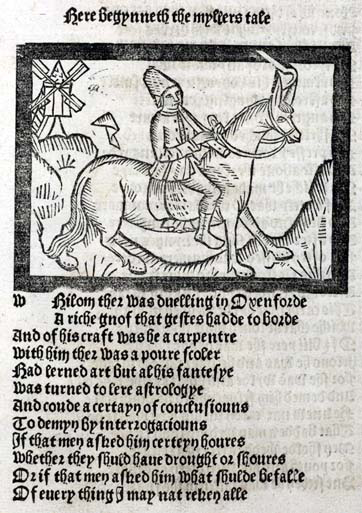Middle English language
| Middle English | |
|---|---|

A page from Geoffrey Chaucer's The Canterbury Tales
|
|
| Region | England, some parts of Wales, south east Scotland and Scottish burghs, to some extent Ireland |
| Era | developed into Early Modern English, Scots, and Yola and Fingallian in Ireland by the 16th century |
|
Indo-European
|
|
|
Early forms
|
Old English
|
| Language codes | |
| ISO 639-2 | |
| ISO 639-3 | |
| ISO 639-6 | meng |
| Glottolog | midd1317 |
Middle English (ME) is collectively the varieties of the English language spoken after the Norman Conquest (1066) until the late 15th century; scholarly opinion varies but the Oxford English Dictionary specifies the period of 1150 to 1500. This stage of the development of the English language roughly followed the High to the Late Middle Ages.
Middle English developed out of Late Old English, seeing many dramatic changes in its grammar, pronunciation and orthography. Writing customs during Middle English times varied widely, but by the end of the period, about 1470, aided by the invention of the printing press, a standard based on the London dialect (Chancery Standard) had become established. This largely forms the basis for Modern English spelling, although pronunciation has changed considerably since that time. Middle English was succeeded in England by the era of Early Modern English, which lasted until about 1650. By that time, a variant of the Northumbrian dialect (prevalent in northern England and spoken in southeast Scotland) was developing into the Scots language.
During the Middle English period many Old English grammatical features were simplified or disappeared. Noun, adjective and verb inflections were simplified, a process that included the reduction (and eventual elimination) of most grammatical case distinctions. Middle English also saw a mass adoption of Norman French vocabulary, especially in areas such as politics, law, the arts, religion and other courtly language. Everyday English vocabulary remained mostly Germanic, with Old Norse influence becoming apparent. Significant changes in pronunciation took place, especially for long vowels and diphthongs, which in the later Middle English period began to undergo the Great Vowel Shift.
...
Wikipedia
